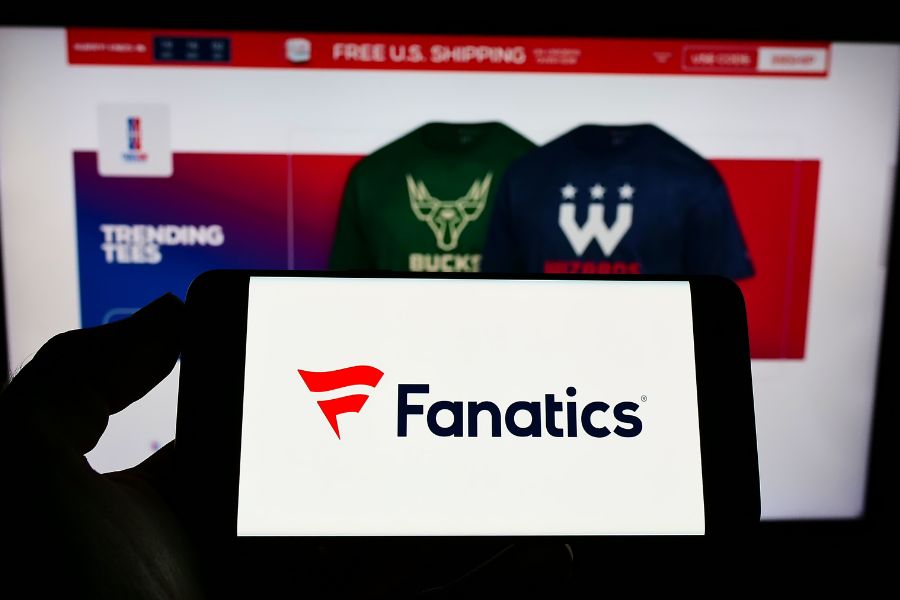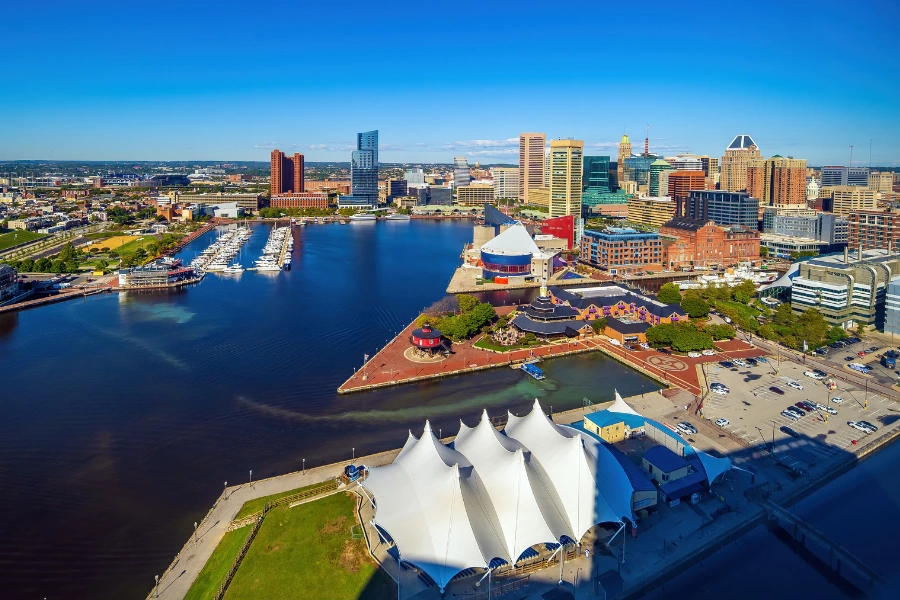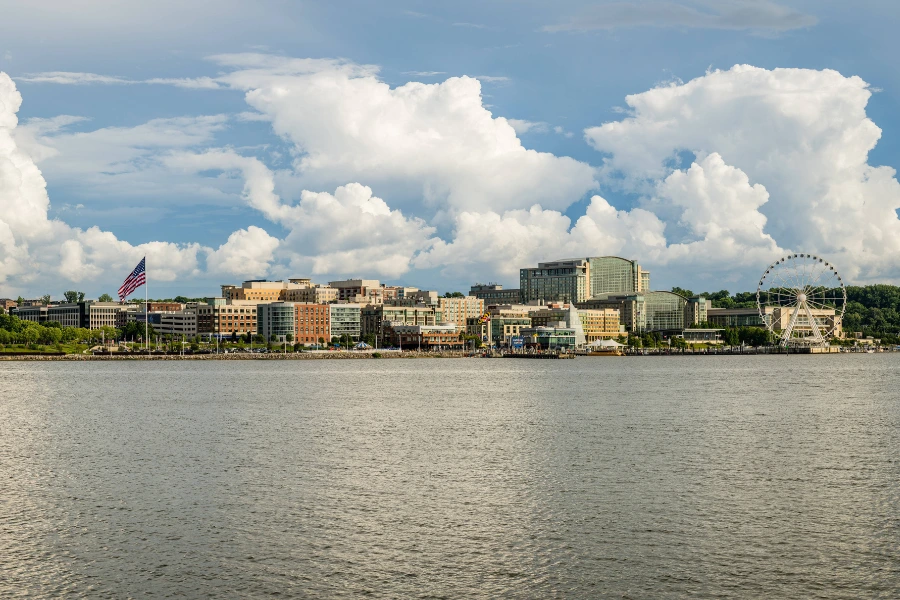And in Maryland, a 2-month “soft launch” – shorter than in several other states – ended earlier in August.
That means that Fanatics sportsbook Maryland is ready to embrace the state’s gamblers who are looking ahead to NCAA college football’s own “soft launch” of games on Aug. 25 ahead of the full-on schedules for college football and the NFL starting in the opening days of September.
“After six months of beta testing, we are excited to officially launch the Fanatics Sportsbook product to the public,” said Scot McClintic, the Chief Product Officer for beta testing, in a statement.
“We are laser-focused on solving pain points facing customers by offering a faster, easier, and a more rewarding sports betting experience. The strategic patience to build a product for the long term has given us an opportunity to redefine a customer’s expectation of what a sportsbook should be. With the Fanatics Sportsbooks product foundation built and wholly owned, customers should expect unparalleled speed of feature improvement, delivery, and innovation.”
On the one hand, Fanatics has a seemingly daunting task of battling nine already-established rivals in Maryland – as well as fellow newcomers Crab Sports and betPARX. On the other hand, no company has managed to achieve a consistent double-digit market share behind industry giants FanDuel and DraftKings.
A unique approach by Fanatics will particularly appeal to bettors already familiar with the company’s other products.
Anyone who signs up for a Fanatics sports betting account automatically is enrolled in the FanCash program, which leads to 5% credit on same-game parlays, 3% credit on multi-game parlays, and 1% credit on straight bets.
While betting industry experts frown upon parlay bets because “the house” typically holds more than twice as much money bet on those longshots compared to traditional wagers, a Maryland gambling fan who already indulges in parlays at least gets some tangible credit with Fanatics.
Buyers of FanCash merchandise also get a 3% credit toward subsequent purchases.
Taking On the Sports Betting Giants?
The existing Fanatics customer database of merchandise customers won’t be as fertile a field for sports betting as DraftKings and FanDuel have reaped from their massive lists of daily fantasy sports loyal customers, but it’s likely that the relative age of its consumers will be younger than that of traditional casino operators such as Caesars or MGM Entertainment.
Even as a soft launch, Fanatics checked in at a respectable seventh place in handle in Maryland in July at $1.9 million.
FanDuel again led the way in “handle,” or the amount wagered on its site, at $99.5 million. DraftKings was a strong second at $92 million, after trailing FanDuel by almost $20 million in June.
BetMGM claimed a distant third place at $23 million out of the $247.4 million wagered in the state last month – double that of fourth-place Caesars.
A potential opening for Fanatics exists, at least temporarily, in the exit of Barstool Sports from the state as part of Penn Entertainment severing its ties with Barstool in order to launch ESPN Bet. Barstool had placed fifth in July in Maryland with $4.4 million in bets placed.
Fanatics’ other rivals not yet mentioned are Betfred, BetRivers, and SuperBook. PointsBet, which has been operating in Maryland, is in the midst of being taken over by Fanatics.
Industry experts are nearly unanimous in the belief that there will be a considerable amount of consolidation in the U.S. sports betting industry in the next few years, as the relatively low profit marginsachieved by sportsbooks make continued operations by the weakest of those impractical.
The state Treasury took in $3.3 million in tax revenue from sports betting in July – including $231,369 from the state’s 10 retail sportsbooks that claim just a small piece of the gambling pie collectively (4% in July). MGM National Harbor, located just outside of Washington, D.C.. was the source of more than one-third of retail bets in Maryland in July.
Since the launch of legal, regulated sports betting in December 2021, the state has collected $31.5 million in tax revenue.
Where Else Fanatics Operates – and Where it is Going Next
Fanatics also is live in Ohio, Massachusetts, and Tennessee – with more states to come, no doubt, in the next 12 months.
The pending purchase of PointsBet could bring Fanatics into New York, the largest state in the U.S. with legal sports betting. Fanatics was denied a license there
However, New York regulators have stated that they would first need to do a thorough background check of Fanatics before accepting it as a replacement for PointsBet. Doing business in New York also is a mixed blessing.
While the handle and thus revenue can be enormous, the state takes 51% of those revenues in the form of taxes. That has led industry experts to question whether any operators in the state are able to produce a consistent net profit.
In fact, Fanatics CEO Michael Rubin said last fall that he wasn’t too disappointed in being left out of the New York mix. At a sports business conference in October, Rubin said.
“We’ll be in every major state other than New York – where you can’t make money – by next football season.”
If that is the case, then why would Fanatics want to get in “the game” in New York now? More than a dozen states have yet to legalize sports betting, and lawmakers and gambling regulators there unfamiliar with the industry likely would give far more credibility to operators who do business in a state as large as New York.
Colorado, Virginia, Kansas, and New Jersey are among the states where regulators have made public Fanatics’ interest in joining the sports betting competition.
For more up-to-date information and news on sports betting in Maryland, make sure you check us out regularly here at MD Betting.





